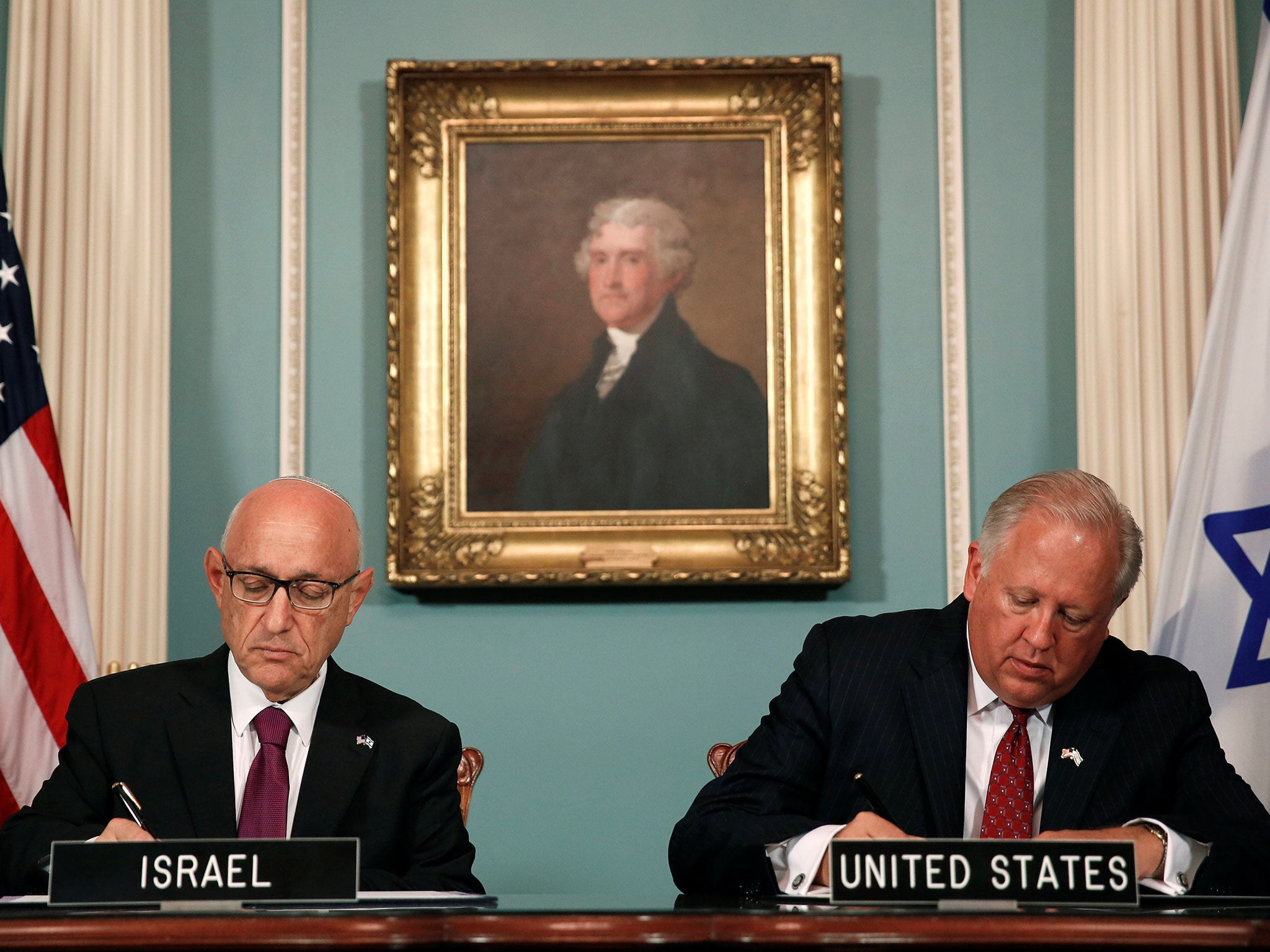Israel's former intelligence chief says $38bn military aid package is not 'largest pledge in US history'
Major General Amos Yadlin says deal conditions will cause reduction of $100m

Your support helps us to tell the story
From reproductive rights to climate change to Big Tech, The Independent is on the ground when the story is developing. Whether it's investigating the financials of Elon Musk's pro-Trump PAC or producing our latest documentary, 'The A Word', which shines a light on the American women fighting for reproductive rights, we know how important it is to parse out the facts from the messaging.
At such a critical moment in US history, we need reporters on the ground. Your donation allows us to keep sending journalists to speak to both sides of the story.
The Independent is trusted by Americans across the entire political spectrum. And unlike many other quality news outlets, we choose not to lock Americans out of our reporting and analysis with paywalls. We believe quality journalism should be available to everyone, paid for by those who can afford it.
Your support makes all the difference.Israel’s former head of military intelligence has claimed the US’s $38bn (£30bn) military aid package is not the “largest pledge of military assistance to any country in American history".
Major General Amos Yadlin said details of the controversial 10-year package suggest the funds offered are in fact substantially lower than previous arrangements between the two countries.
“The aid package we received is slightly less than what we received in the previous agreement, it’s a decrease of $100m (£77m),” Yadlin told Israel’s Army Radio.
“We could have received a better aid deal, [but] the Prime Minister gave an unnecessary speech to Congress, and we’re paying for it.”
He was referring to a speech made by Benjamin Netanyahu in March 2015, when the Israeli Prime Minister addressed Congress at the invitation of Republican members without going through the White House as normal protocol demands.
His attack on “Iran's march of conquest, subjugation and terror” during negotiations over the looming nuclear deal was taken as a slight to Barack Obama’s administration.
Senior officials have provoked anger among some Israeli politicians by calling for an end to settlement building in the Occupied Palestinian Territories and for Israel to take meaningful steps towards a two-state solution.
But when the aid deal was signed on Wednesday, Israel’s National Security Council chief Jacob Nagel said Israel “has no better friend, no more reliable, strategic ally, no more important partner than the United States”.
National Security Advisor Susan Rice said the agreement reaffirmed the “unbreakable bond” between the two nations.
Since President Obama took office, the US has provided almost $24bn (£18bn), including investment in Iron Dome and other missile defence systems, and given the Israeli Air Force F-35 fighter jets.
“This is the single largest pledge of military assistance to any country in US history,” Ms Rice added.
But former Israeli Prime Minister Ehud Barak said a 20 per cent rise in the cost of arms since the last 10-year agreement came into effect and a clause barring Israel from seeking further funds from Congress meant Israel had “no greater purchasing power” than previously.
“The damage produced by Netanyahu’s irresponsible management of the relations with the White House is now fully manifest,” he wrote in the Washington Post.
“Israel will receive $3.8bn (£2.9bn) a year — an important contribution to our security but far less than what could have been obtained before the Prime Minister chose to blatantly interfere with US politics.”
The agreement includes $33bn (£25bn) in “foreign military financing funds” and $5bn (£4bn) for missile defence.
The Memorandum of Understanding came amid tensions over the Iran deal, the construction of West Bank settlements and continuing Palestinian attacks and security crackdowns.
At least 34 Israelis and two Americans have been killed in Palestinian attacks over the past year, with more than 200 Palestinians shot dead by security forces, who say the majority were carrying out or attempting assaults.
Join our commenting forum
Join thought-provoking conversations, follow other Independent readers and see their replies
Comments